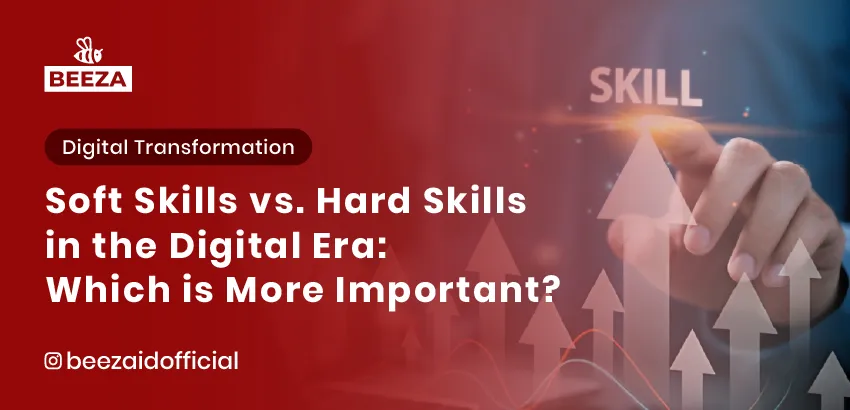
Introduction: Soft Skills vs. Hard Skills
In today’s fast-paced digital era, the nature of work is evolving rapidly, and so are the skills required to thrive. The debate between the importance of soft skills and hard skills has become more relevant than ever. While technical abilities (hard skills) remain crucial, soft skills such as communication, adaptability, and problem-solving are becoming equally vital. The question is: which type of skill is more important in the digital age, and how can professionals balance both to succeed?
Understanding Soft Skills and Hard Skills
Hard skills refer to specific, teachable abilities that can be measured and quantified. These include coding, data analysis, foreign language proficiency, and technical certifications.
Soft skills, on the other hand, are interpersonal or people skills that relate to how one interacts with others and approaches work. Examples include teamwork, time management, leadership, emotional intelligence, and creativity.
The Growing Importance of Soft Skills in the Digital Age
As automation and AI take over repetitive and technical tasks, soft skills are gaining prominence. While machines can handle data processing, they cannot replicate human empathy, collaboration, and ethical judgment. Thus, soft skills are essential for roles that require customer interaction, innovation, and strategic thinking.
Key Soft Skills in Demand:
- Adaptability: Ability to adjust to new technologies and workflows.
- Communication: Clear and effective information exchange in diverse teams.
- Critical Thinking: Analyzing information to make informed decisions.
- Collaboration: Working across departments and with digital tools.
The Ongoing Need for Hard Skills
Despite the rise of soft skills, hard skills remain foundational, especially in tech-driven industries. Professionals need to understand and operate complex systems, use software tools, and analyze data. Hard skills are also essential for staying relevant in specialized fields like IT, finance, and engineering.
Key Hard Skills in Demand:
- Data Literacy: Ability to interpret and work with data.
- Coding and Programming: Skills in languages like Python, JavaScript, etc.
- Cybersecurity Awareness: Understanding digital security threats.
- Project Management Tools: Proficiency in tools like Trello, Asana, or Jira.
Balancing Soft and Hard Skills for Success
In the digital workplace, success requires a blend of both skill types. Employers value individuals who not only excel at technical tasks but can also lead teams, communicate effectively, and adapt to change. According to various surveys, companies are prioritizing employees who demonstrate emotional intelligence alongside technical expertise.
Strategies to Develop Both Skills:
- Continuous Learning: Enroll in online courses and workshops.
- Feedback and Reflection: Seek feedback on both technical and interpersonal skills.
- Cross-functional Projects: Collaborate across departments to broaden skills.
- Mentorship Programs: Learn from experienced professionals in both areas.
The Future Outlook: Skills in 2025 and Beyond
As we look toward the future, the integration of soft and hard skills will define professional success. Emerging roles will demand hybrid skill sets where digital fluency meets human-centric capabilities. For example, AI trainers need technical know-how and the ability to empathize with user needs.
Organizations must also adjust hiring and training practices to focus on developing holistic skill sets in their workforce, fostering a culture of continuous growth and innovation.
Conclusion
In the digital era, neither soft skills nor hard skills can be overlooked. The synergy between them is what drives innovation, efficiency, and adaptability in a competitive environment. Professionals who invest in developing both will position themselves as invaluable assets in the ever-evolving job market.